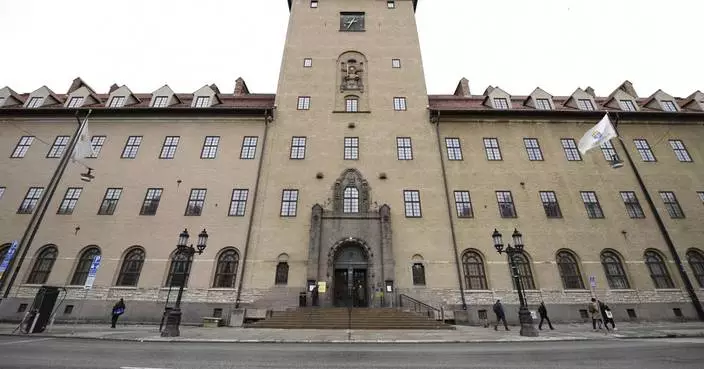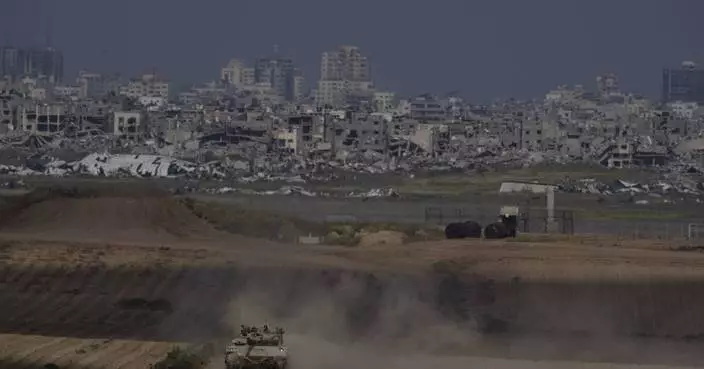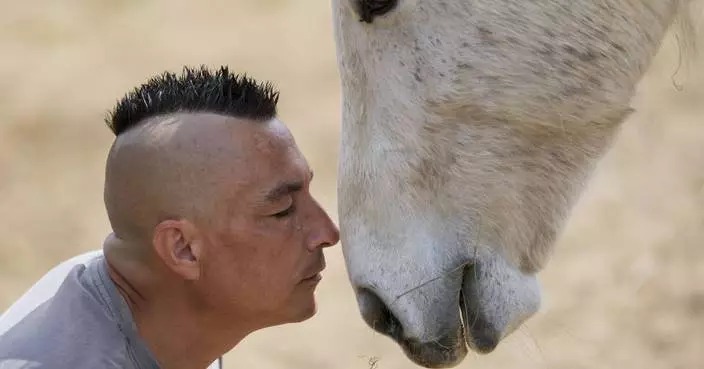Syria's war was not kind to the animals at Magic World.
As clashes became intense around the amusement park near Aleppo, people struggled to find food and medicine for themselves, let alone for the wild animals in cages.
Click to Gallery
Syria's war was not kind to the animals at Magic World.
So last week, an animal charity rescued two bears, three lions, two hyenas and two tigers, driving them 1,000 kilometers (600 miles) to a wildlife reserve in northwestern Turkey, where they are receiving medical care in preparation for permanent homes in sanctuaries in the Netherlands and Jordan.
"These animals are trapped," said Dr. Amir Khalil, who heads the effort for Austria-based Four Paws. "They cannot go anywhere. It's very difficult to supply food and medical care."
Others have more worrisome conditions. One of the tigers went into cardiac arrest when he was tranquilized for an exam, and was resuscitated. Both bears need root canals. One of the hyenas has cataracts and the other has end-stage kidney disease.
A lion, rescued from an amusement park near the embattled city of Aleppo, Syria, waits to receive medical treatment. (AP Photo)
A tiger receives an ultrasound during medical treatment. (AP Photo)
A tiger receives medical treatment from a health care member of the Four Paws organisation. (AP Photo)
Health care members of the Four Paws organisation, attend to animals awaiting medical treatment . (AP Photo)
Health care members of the Four Paws organisation, attend to animals awaiting medical treatment. (AP Photo)
A hyena rescued from an amusement park near the embattled city of Aleppo. (AP Photo/Emrah Gurel)
A wounded lion rescued from an amusement park. (AP Photo)
A health care member of the Four Paws organisation, attends to hyenas in their cages in Bursa. (AP Photo)
Dr. Amir Khalil, head of Four Paws' organisation. (AP Photo)
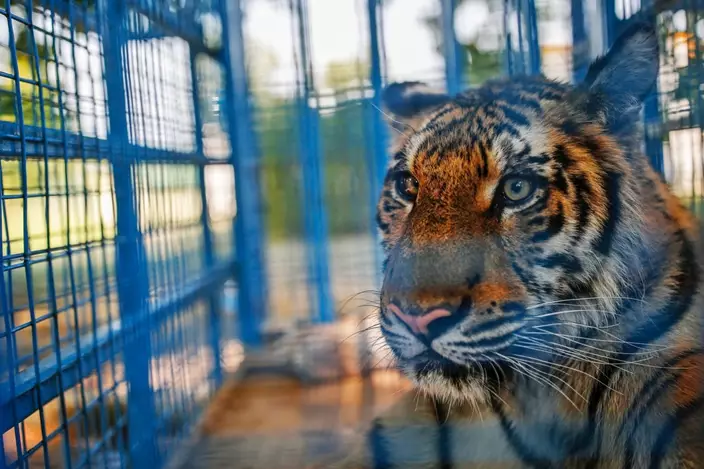
A tiger rescued from an amusement park near the embattled city of Aleppo, Syria, sits on its cage to receive medical treatment from health care members of the Four Paws organisation. (AP Photo)
So last week, an animal charity rescued two bears, three lions, two hyenas and two tigers, driving them 1,000 kilometers (600 miles) to a wildlife reserve in northwestern Turkey, where they are receiving medical care in preparation for permanent homes in sanctuaries in the Netherlands and Jordan.
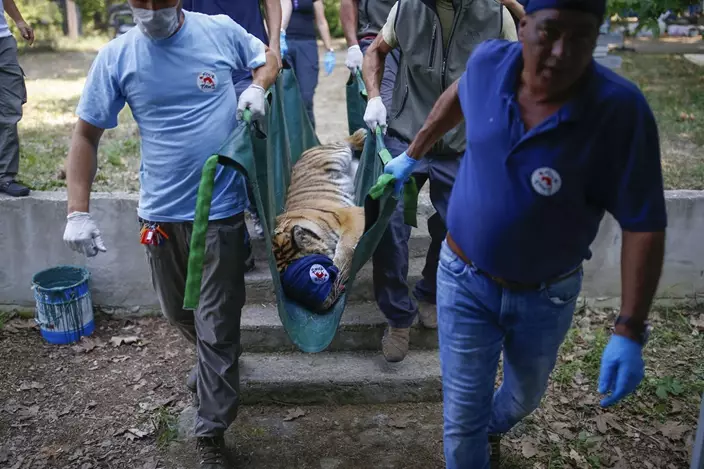
A tiger rescued from an amusement park near the embattled city of Aleppo, Syria, is carried to receive medical treatment from health care members of the Four Paws organisation. (AP Photo)
"These animals are trapped," said Dr. Amir Khalil, who heads the effort for Austria-based Four Paws. "They cannot go anywhere. It's very difficult to supply food and medical care."
Doctors said some of the animals, including a female tiger, are in decent shape, all things considered.
"There were some skin lesions. She had a massive load of ticks, ectoparasites," said veterinarian Frank Goeritz. "But due to the fact that she's still young, everything was OK."
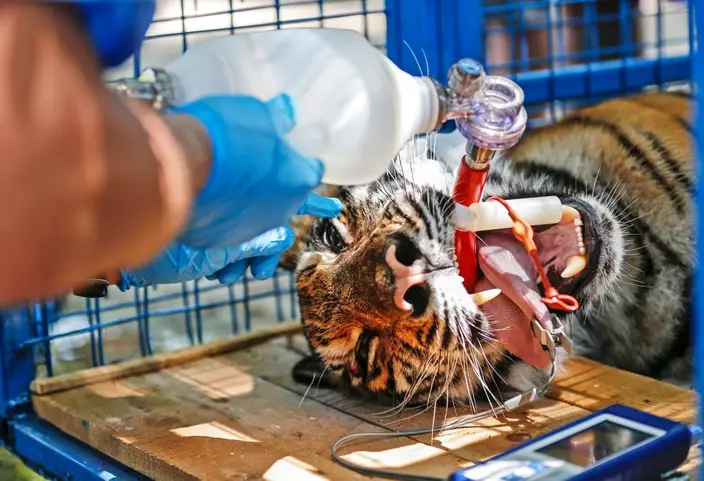
A tiger rescued from an amusement park. (AP Photo/Emrah Gurel)
Others have more worrisome conditions. One of the tigers went into cardiac arrest when he was tranquilized for an exam, and was resuscitated. Both bears need root canals. One of the hyenas has cataracts and the other has end-stage kidney disease.
But with proper care, both vets are hopeful most of the animals will lead good-quality lives.
"We hope their condition will improve in the coming weeks and months," Khalil said.
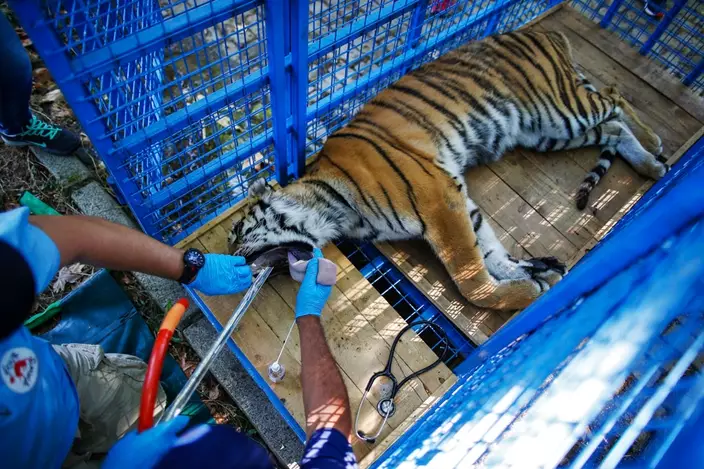
A tiger rescued from an amusement park near the embattled city of Aleppo, Syria. (AP Photo)
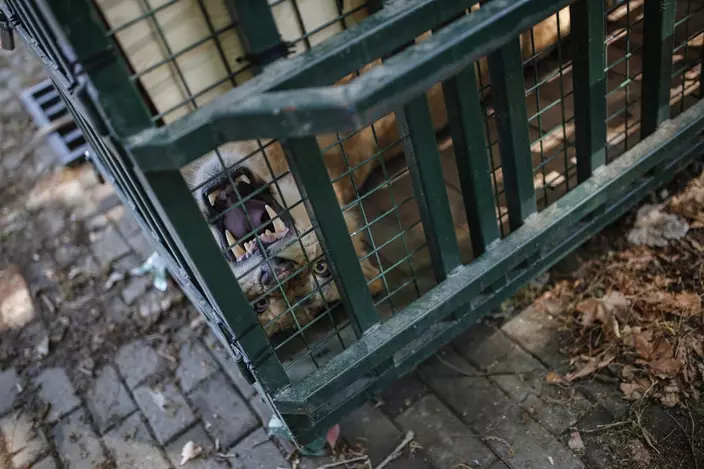
A lion, rescued from an amusement park near the embattled city of Aleppo, Syria, waits to receive medical treatment. (AP Photo)
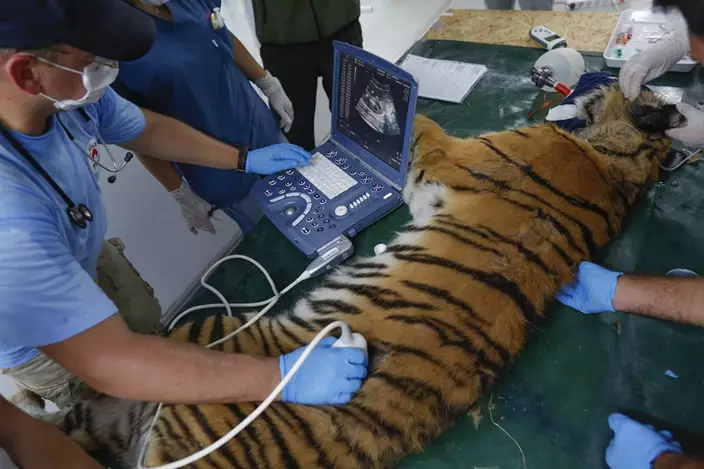
A tiger receives an ultrasound during medical treatment. (AP Photo)
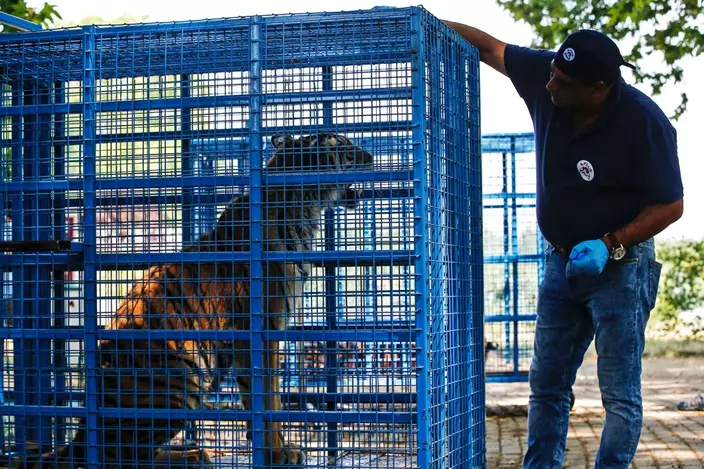
A tiger receives medical treatment from a health care member of the Four Paws organisation. (AP Photo)
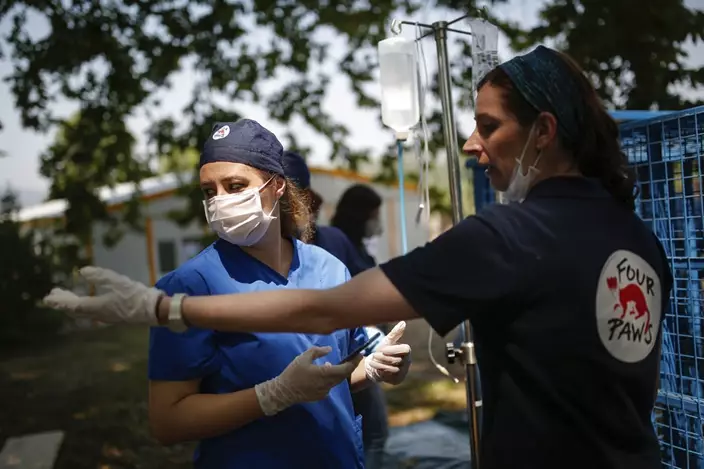
Health care members of the Four Paws organisation, attend to animals awaiting medical treatment . (AP Photo)
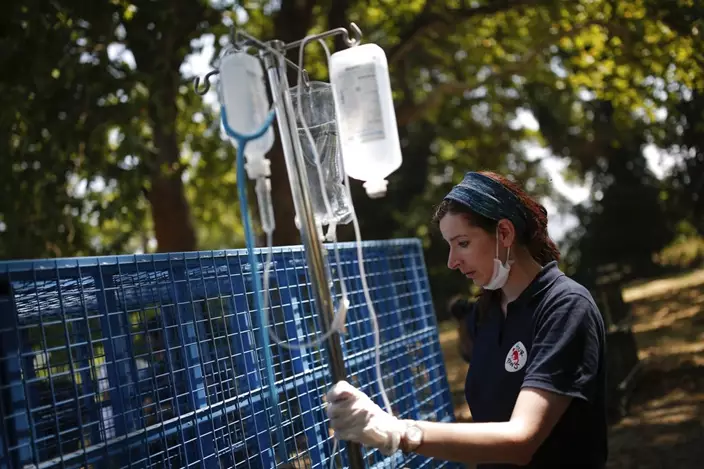
Health care members of the Four Paws organisation, attend to animals awaiting medical treatment. (AP Photo)
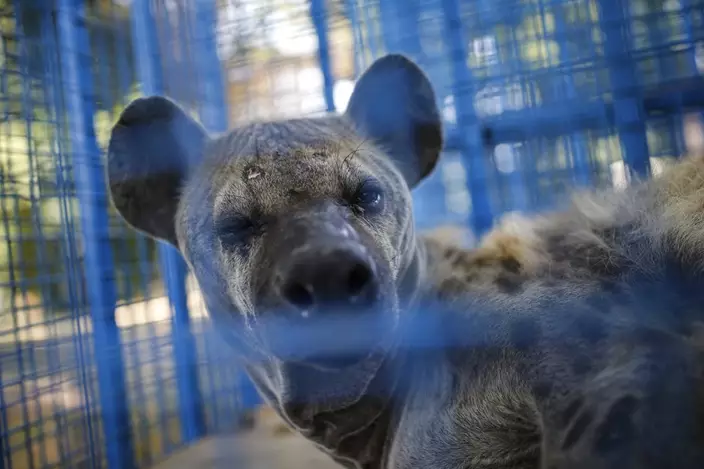
A hyena rescued from an amusement park near the embattled city of Aleppo. (AP Photo/Emrah Gurel)
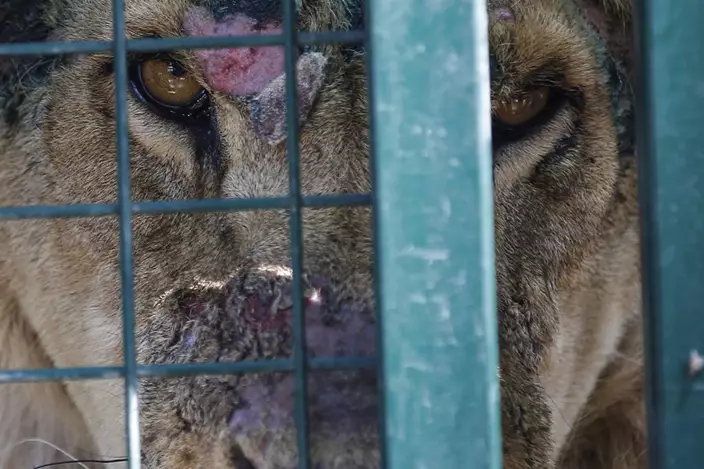
A wounded lion rescued from an amusement park. (AP Photo)
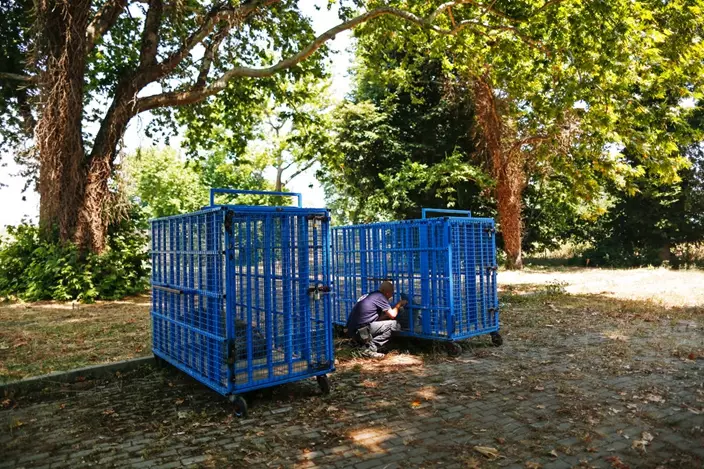
A health care member of the Four Paws organisation, attends to hyenas in their cages in Bursa. (AP Photo)
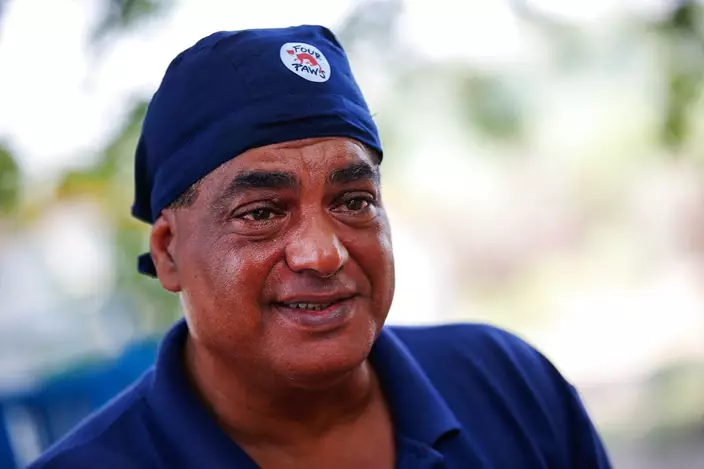
Dr. Amir Khalil, head of Four Paws' organisation. (AP Photo)
BEIRUT (AP) — Amnesty International said Wednesday it has documented widespread abuses, including torture and deprivation of medical care, in detention facilities holding thousands of suspected Islamic State members and their relatives in northeast Syria.
The centers and camps hold about 56,000 people — the majority of them children and teens — and are run by local authorities affiliated with the U.S.-backed, Kurdish-led Syrian Democratic Forces. The SDF and its allies, including U.S.-led coalition forces, defeated the Islamic State group in Syria in 2019, ending its self-proclaimed Islamic “caliphate” that had ruled over a large swath of territory straddling Iraq and Syria.
What to do with the suspected IS fighters and their families has become an intractable issue. Many countries whose citizens traveled to Syria to join IS have been reluctant to repatriate them, as have local communities in Syria.
"People held in this system are facing large-scale violations of their rights, some of which amount to war crimes,” Nicolette Waldman, Amnesty’s senior crisis advisor, told journalists.
The United States is also responsible for the alleged violations because it played a key role in establishing and maintaining the detention system, providing hundreds of millions of dollars to the SDF and affiliated forces and regularly interrogating detainees, Waldman said.
The human rights group interviewed 126 people accused of IS affiliation currently or formerly detained, along with representatives of the local administration and aid workers.
The Amnesty report said the vast majority of detainees are being held “indefinitely, without charge or trial, in violation of international human rights law and international humanitarian law,” while those who have been tried were, in many cases, convicted on the basis of confessions extracted under torture.
The alleged abuses include “beating, stress positions, drowning, electric shocks and gender-based violence,” including a male detainee who said he and others had been sodomized with broomsticks by guards, the report said. Detainees were also deprived of food, water and medical care and subjected to extreme cold and heat in overcrowded cells, with some allegedly dying of suffocation, it said.
The report added that many of the approximately 14,500 women and 30,000 children held had been victims of human trafficking, including women who were forced to marry IS fighters and minors who were forcibly recruited by the group, and that local authorities had failed to set up a “mechanism to identify trafficking victims” and protect them.
The report also criticized the practice of forcibly separating adolescent boys — some as young as 11 or 12 — from their mothers and placing them in rehabilitation centers indefinitely.
Amnesty called on local authorities, the U.S. government and other allies to bring the detention system into compliance with international law and urged the United Nations to work with them to establish a screening process to release all who are not “reasonably suspected” of having committed a serious crime.
The Autonomous Authorities of the North and East Syria Region, the civilian administration affiliated with the SDF, wrote in response to the Amnesty findings that it had not received any official complaints regarding torture in detention facilities and “if this happened, they are individual acts.”
The administration said it would take action against employees who committed violations if evidence is provided. It denied allegations that inmates were deprived of food, water and medical care. It acknowledged overcrowding in the facilities, which it attributed to lack of financial resources to secure larger centers.
The local authorities took issue with the allegation that people were arbitrarily detained, asserting that most detainees “are members of a terrorist organization and were arrested during the battles" and that many had committed crimes against humanity and war crimes.
The U.S. State Department said in its own response that “we share many of (Amnesty’s) concerns” and it has been working to address them. It called on the international community to “aid local entities’ management of these challenges” and for countries with citizens held in detention in Syria to repatriate them.
Waldman said she believes Washington "very likely knew about these poor conditions from the beginning."
She added: “We think that it may not be the case that they are doing everything they can. They need to accept a much greater responsibility, especially since they played such a key role in establishing the situation in the first place."
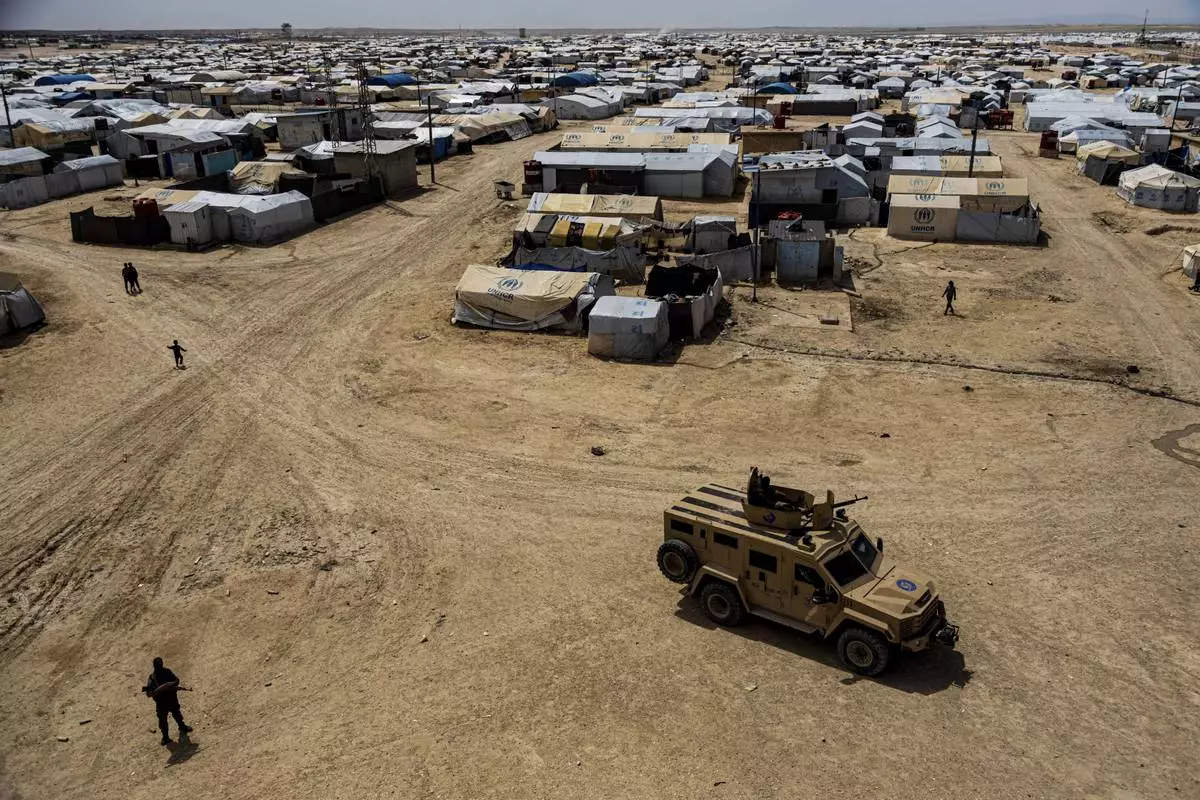
FILE - Kurdish forces patrol al-Hol camp, which houses families of members of the Islamic State group in Hasakeh province, Syria, on April 19, 2023. Amnesty International said Wednesday, April 17, 2024 it has documented widespread abuses, including torture and deprivation of medical care, in detention facilities holding thousands of suspected Islamic State members and their relatives in northeast Syria. (AP Photo/Baderkhan Ahmad, File)
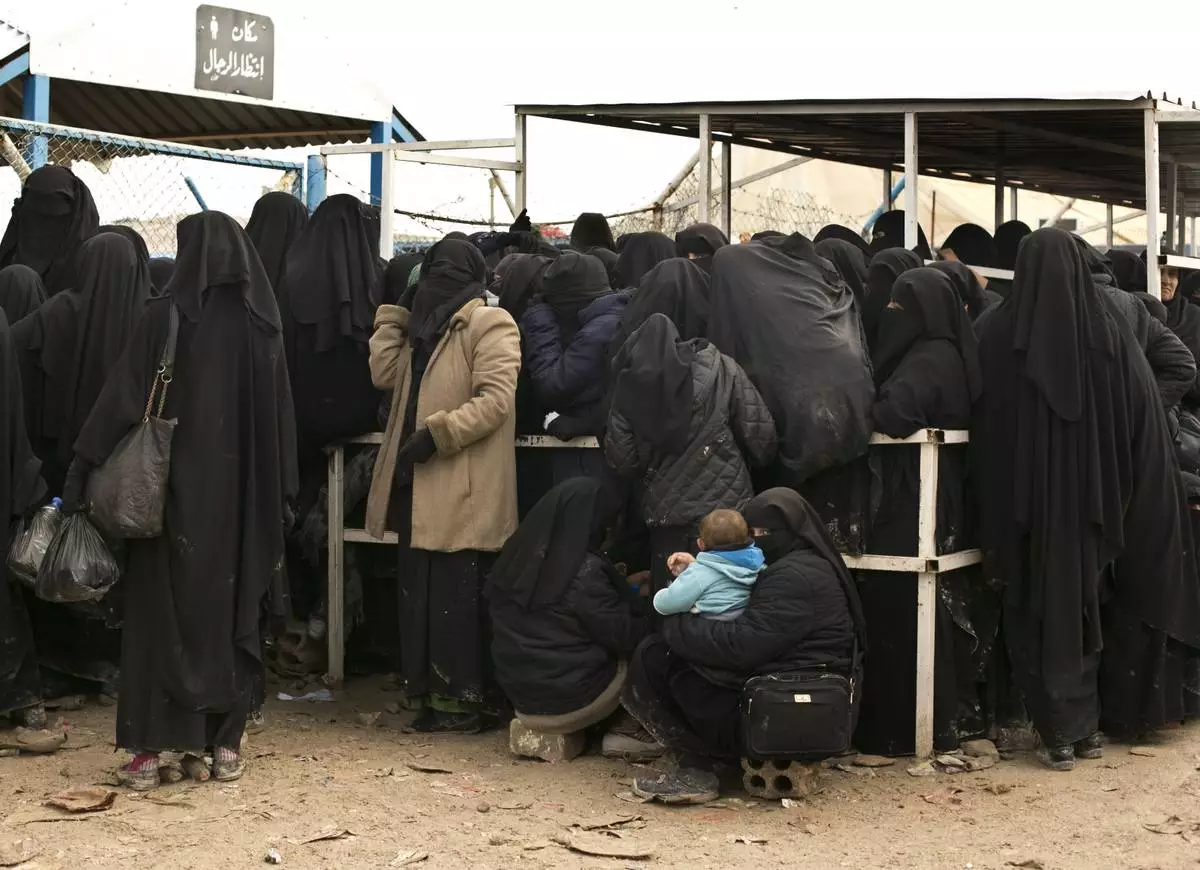
FILE - Women residents from former Islamic State-held areas in Syria line up for aid supplies at Al-Hol camp in Hassakeh province, Syria, March 31, 2019. Amnesty International said Wednesday, April 17, 2024 it has documented widespread abuses, including torture and deprivation of medical care, in detention facilities holding thousands of suspected Islamic State members and their relatives in northeast Syria. (AP Photo/Maya Alleruzzo, File)




















